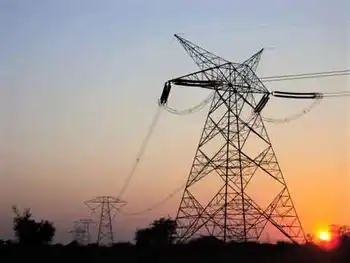Heat wave fuels coal debate
TORONTO, ONTARIO - It seemed more like July as the heat wave set a record for hydro use in May and appeared to melt the Liberal promise for closing the last of Ontario's coal-fired power plants by 2009.
While Ontarians cranked up their air conditioners and smog cloaked much of the province, Energy Minister Dwight Duncan repeatedly refused to reaffirm the coal pledge aimed at making the air easier to breathe.
It was just a year ago in June that he admitted the Liberal election promise to close all the coal plants, which contribute to smog and global warming, by 2007 was not feasible and had to be pushed back two years.
"Only these guys could break a broken promise," said Progressive Conservative Leader John Tory, telling Duncan: "You owe it to the people to be clear."
About 30 per cent of Ontario's power comes from coal plants.
Duncan hinted the government is more concerned about limiting pollution from the coal plants than it is about how soon the plants are shut down as Ontario struggles to meet growing demand for hydro.
"We remain committed to moving forward on reduction of emissions and making sure that as we go forward, as we've always said, that we don't compromise the reliability of the system."
The system was stretched in 33C sauna, at one point seeming it might approach the all-time record set last July 13, when 26,160 megawatts of electricity were used.
The demand was an early reminder of last year's summer of heat, which recorded nine of the top 10 all-time days for electricity demand in Ontario history.
The maximum use for May 30 reached just under 25,000 megawatts, nearly 25 per cent higher than during the previous May record set two years ago. It included more than 2,000 megawatts of imported power because plants in the province couldn't produce enough to meet demand.
"What's significant is it's happening in May," said Terry Young of the Independent Electricity System Operator, the government agency in charge of securing enough power for the province.
Customers won't feel the pinch from the cost of imported power until next year when rate increases are set, said Tom Adams of the watchdog group Energy Probe.
"This is going to come back to bite us."
The heat wave that began a few days ago is "just the beginning of what looks like a warm summer," climatologist David Phillips of Environment Canada told Canadian Press. "Find out where your halter tops and your muscle shirts are and where your cool beer is, because we're going to see more of it."
Duncan said he's not too worried about blackouts or a repeat of last summer's brownouts this year because Ontario has 600 more megawatts of generating capacity than it did last year, mainly from a restarted unit at the Pickering nuclear station.
"This summer should not be as challenging as last summer," he said. "We should be okay."
But Adams challenged that view given the recent power use.
"I expect it's going to get a lot worse this summer," he said. "The first heat wave is never the worst. A lot of people don't even turn their air conditioners on until day three."
The high temperatures of the last two days were caused by an air system from the Gulf of Mexico and are expected to ease off, but the political heat is expected to remain on Duncan.
His plan from last June was to close three remaining coal plants near Sarnia, Thunder Bay and Atikokan by 2007 but keep the huge Nanticoke coal-fired plant near Lake Erie, the largest polluter in Canada, open until early 2009.
That's in doubt given Duncan's refusal to repeat those dates.
"Now he's getting wishy-washy all of a sudden," said Adams, warning that shutting coal plants could be a disaster in terms of keeping the lights on.
The irony is that imported power is largely from coal-fired plants in the U.S. Midwest that spew pollution and smog into Ontario, Adams added.
Duncan promised more details "very shortly" on his plan for meeting Ontario's need for energy over the next couple of decades.
It is widely expected his plan will include more nuclear power.
Related News

Massachusetts stirs controversy with solar demand charge, TOU pricing cut
WASHINGTON - A recent Massachusetts Department of Public Utilities' rate case order changes the way solar net metering works and eliminates optional residential time-of-use rates, stirring controversy between clean energy advocates and utility Eversource.
"There is a lot of room to talk about what net-energy metering should look like, but a demand charge is an unfair way to charge customers," Mark LeBel, staff attorney at non-profit clean energy advocacy organization Acadia Center, said in a Tuesday phone call. Acadia Center is an intervenor in the rate case and opposed the changes.
The Friday MDPU order implements demand charges…




